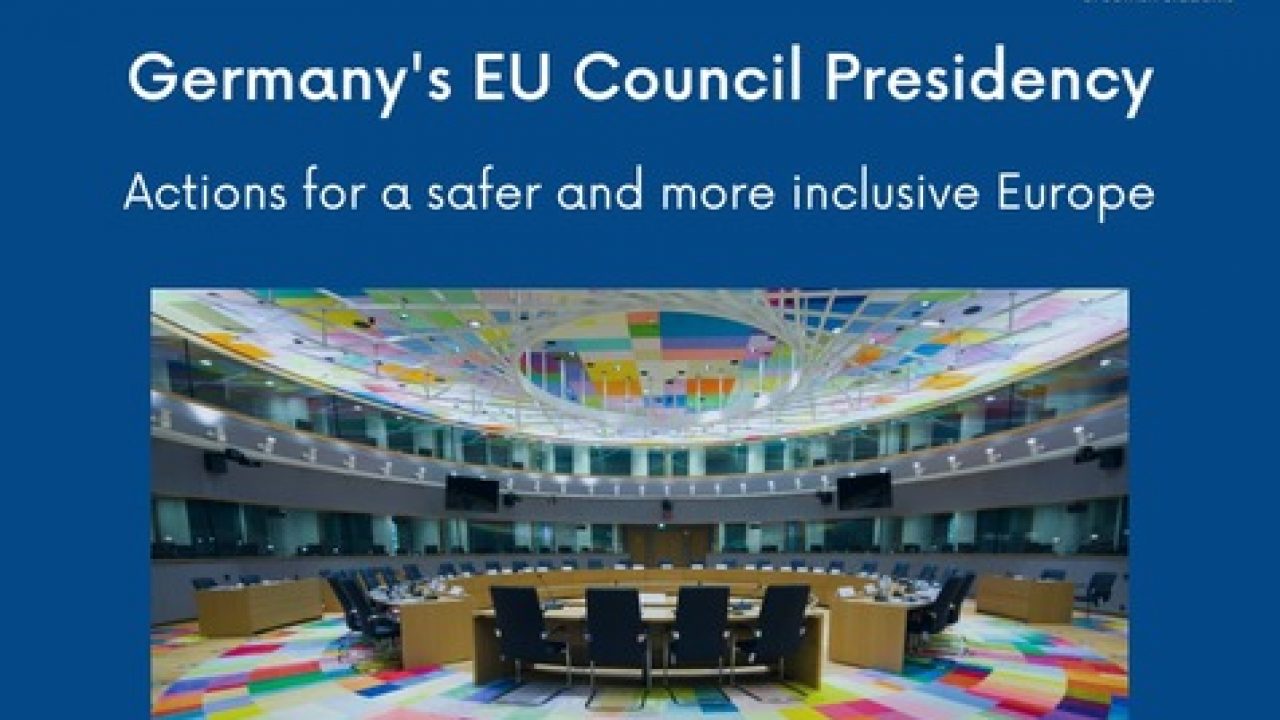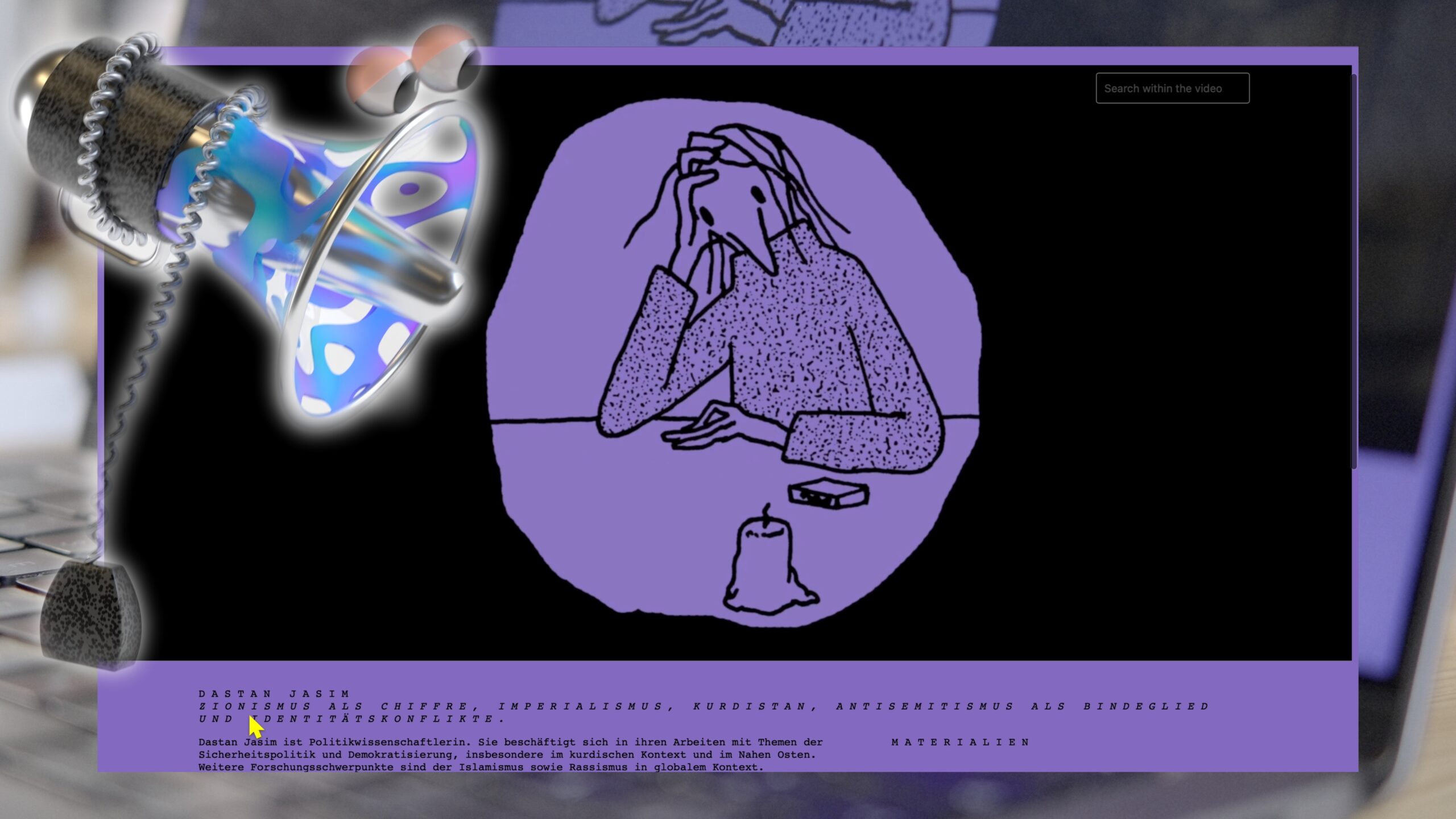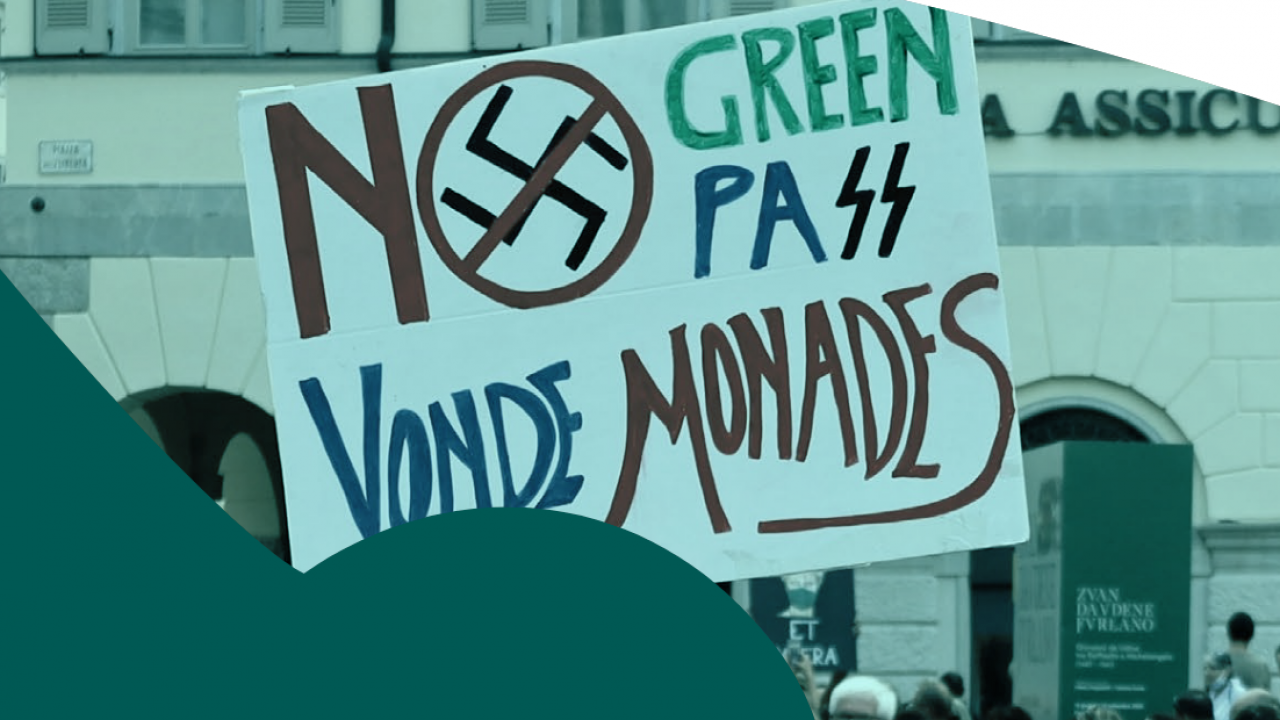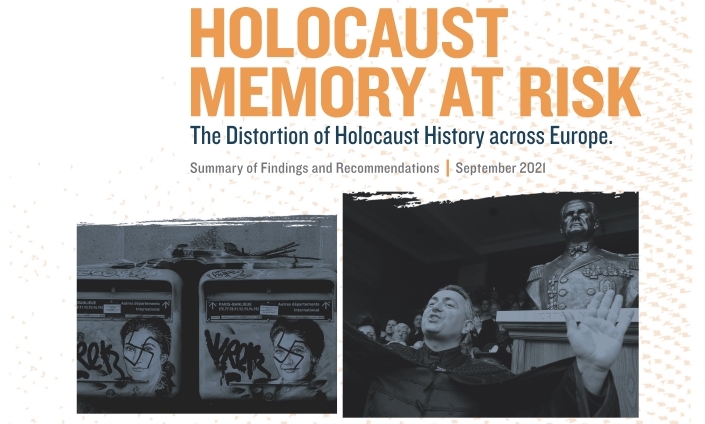One topic has dominated the media in recent months: the Covid 19 pandemic. With the pandemic, more and more conspiracy myths – some of them openly antisemitic – appeared on the political stage, on the net, in the streets, among friends and acquaintances. The millions of people these myths reached were the reason to start the Actionweeks against Antisemitism 2020 already in May with a Digital Campaign Day against Conspiracy Myths and Antisemitism. Time to draw a first balance!
At the beginning of July, the 50th event of the nationwide Actionweeks against Antisemitism took place, organized by the Amadeu Antonio Foundation in cooperation with the Berlin based Anne Frank Centre. The three focal points of the Action Weeks against Antisemitism 2020 are the role of antisemitic conspiracy myths in the context of the Covid 19 pandemic and the attack on the synagogue in Halle (Saale) as well as the Jewish perspective on those phenomena. After all, what does solidarity with Jews mean in times of Covid-19 conspiracy myths and right-wing terrorist attacks like the one in Halle?
The attack in Halle and the conspiracy myths surrounding Covid-19 have one unifying element: antisemitism. This is the basic structure of all conspiracy myths. The chairwoman of the Amadeu Antonio Foundation, Anetta Kahane, speaks of the “operating system”. It is the basic structure even when Jews do not appear in the conspiracy myth. Matthias Quent, head of the “Institute for Democracy and Civil Society” (IDZ Jena), emphasised this in an event on the Digital Action Day: “In conspiracy myths, people like Bill Gates are attributed ‘demonic plans’. This attribution is often in the tradition of anti-Semitic projections, even if it does not mention Jews specifically.
The attack in Halle showed that words can become deeds: The sometimes seemingly harmless conspiracy stories all too often lead to physical attacks on the imagined enemy. It is high time to counter these conspiracy tales with something.
With the official start of the action weeks, the campaign “seriously? #glaubnichtalles” (translated: don’t believe just everything!) campaign was launched. On the website www.corona-entschwoerung.de the most common myths about Covid-19 are debunked. The conspiracy generator, which randomly generates combined conspiracy stories such as “Secret laboratory controls your toilet paper” or “Jewish mafia controls your tinderdate”, takes aim at the sometimes bizarrely appearing conspiracy stories in the form of deliberately parodic combinations.
Once again this year, the Action Weeks are networking and bundling numerous organizations in their fight against antisemitism, ranging from the Ernst Ludwig Ehrlich Studienwerk (ELES), the various organizations of the Competence Network Antisemitism (KompAS) and the Competence Network Right-Wing Extremism (KompREX) to the Left Alliance against Antisemitism in Munich and the residents’ initiative for Civil Courage – Against Right.
The goal of the action weeks is also to make the Jewish perspective on antisemitism more visible. With “The Jewish Quartet”, we therefore launched a new talk format. At our 50th event, Anetta Kahane (Amadeu Antonio Foundation), Dalia Grinfeld (Anti-Defamation League), Laura Cazés (Central Welfare Organization of Jews in Germany) and Rebecca Seidler (Liberal Jewish Community of Hanover) discussed the topic “‘As a minority among minorities’ – Jewish perspective(s)”. Sharon Adler (AVIVA Berlin) moderated the panel, which is streamed via YouTube.
The idea of the quartet arose from a live discussion that took place during the “Digital Action Day against Conspiracy Myths and Anti-Semitism”. In the discussion, the Jewish women exchanged views on the question of what – in view of the attack on the synagogue in Halle – solidarity with Jews could look like.
Anetta Kahane stated: “Jews are part of German civil society, but are rarely seen and heard, especially when it comes to the topic of antisemitism. In order to make the Jewish perspective more visible and audible, however, we also need infrastructural support for this.” The new talk format “The Jewish Quartet” now wants to regularly express this perspective.
With the start of the German EU Presidency, the Actionweeks will focus on another topic: antisemitism as a challenge for the European project. The dangers, such as the question of what can be done about it and what should be done, are the subject of two interviews with Bini Guttmann, President of the European Union of Jewish Students, and Sergei Lagodinsky, a Green MEP. Furthermore, in July, a series of events will be launched by IIBSA in cooperation with us as part of the action weeks on the topic of “Europe and Anti-Semitism”.



